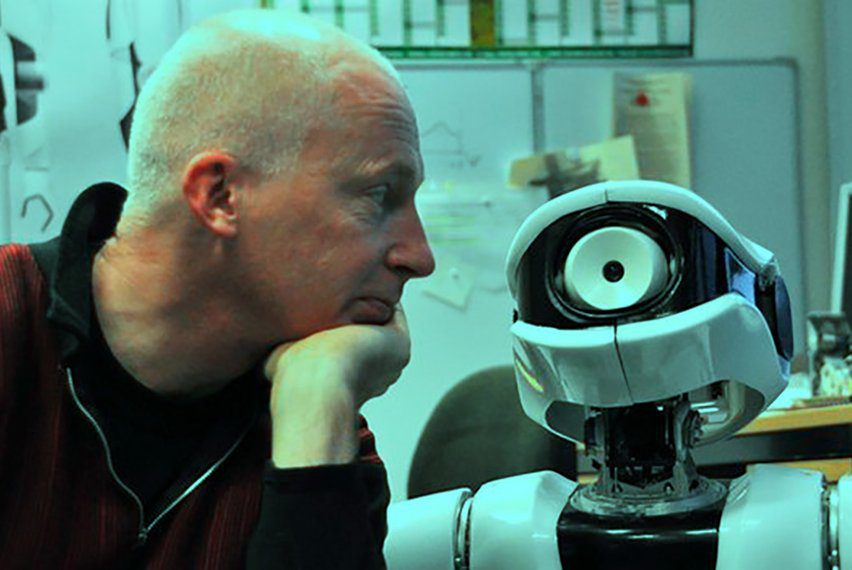
There has been much speculation about what technological developments we will benefit from in the near future. Some people think that we may have 3D printed cars, or even 3D printed organs. Others think that robots will be doing housework and taking over our jobs. Others still think that implanted smartphones could be the way of the future. According to Klaus Schwab, writing for the World Economic Forum in 2015 a lot of people think this. In fact, in a poll carried out by the World Economic Forum’s Global Agenda Council on the Future of Software and Society showed that 75% of participants see these types of technological developments as being likely or realistic. This leads Schwab to argue that:
“We are about to witness a Fourth Industrial Revolution, impacting every aspect of our societies. Will the impact be for the better or for the worse?”
Answering this requires understanding what the Fourth Industrial Revolution is. This means also understanding what the previous three were too. The first began around 1750 and led to the development of mechanical production, leading to the steam engine, among other important advancements. The second industrial revolution is argued to have begun at the start of the 20th century and it led to the use of electricity and an assembly line in factories. The third is explained to be the computer revolution which began in the 1960s. This revolution endowed us with computers and the internet.
The fourth industrial revolution is going on all around is. It is estimated to have a very profound effect on the way that we live.
There are three differences that make the current revolution different to the previous ones
One of these differences is the speed – the current revolution has ramped up much faster than the previous ones. A second is that the main focus is not limited to only one area. Rather, it focuses on many different areas, such as but not limited to 3D printing, nano-technology, networks and brain research among others. The third important difference is the fact that entirely new economical systems are being created, such as we have seen with the sharing economy.
The impact on businesses and economies will be interesting as it is thought that entrepreneurship and flexibility will be really important in achieving success. This is already been seen to a large degree, where businesses that have greater agility are more likely to succeed, often smaller firms beating bigger firms. Smaller businesses are coming up with exciting new business models and unseating the traditionally established competition.
Another change is the fact that skill and labour needs will differ from the current time. It is argued that countries need to prepare for this so that people have the skills they need to be able to compete. It is also argued that governments will be of greater importance than in the current time, since if everything is moving as quickly as it is anticipated to do there will need to be quicker and more standards and rules put in place to handle this.
In this new industrial revolution, it is believed that robots and humans could be living and working together a lot more. This raises questions of trust. A good example is if a person is faced with an illness and a robot and human doctor prescribe different drugs and care strategies to get well. It would be hard to know who to trust. Another great example provided is if you were arrested for a crime that you didn’t commit, would you rather get tried by a robot or a human judge. These are questions we may face and sooner than you think. In fact, in some cases it is already happening.
Some believe that there could end up being conflict between people and robots. This could have two potential outcomes. One would be and economic struggle where humanity is destroyed at its core. The other is a warmer prediction of collective operations and strong moral conscience. This will require excellent role models for both people and robots so that every entity working together is able to operate in a way that meets expectations. Do it right and we could end up living in societies that are caring and sustainable. This should feel good, and it is also anticipated that such an approach would be sustainable.

Paula Newton is a business writer, editor and management consultant with extensive experience writing and consulting for both start-ups and long established companies. She has ten years management and leadership experience gained at BSkyB in London and Viva Travel Guides in Quito, Ecuador, giving her a depth of insight into innovation in international business. With an MBA from the University of Hull and many years of experience running her own business consultancy, Paula’s background allows her to connect with a diverse range of clients, including cutting edge technology and web-based start-ups but also multinationals in need of assistance. Paula has played a defining role in shaping organizational strategy for a wide range of different organizations, including for-profit, NGOs and charities. Paula has also served on the Board of Directors for the South American Explorers Club in Quito, Ecuador.









